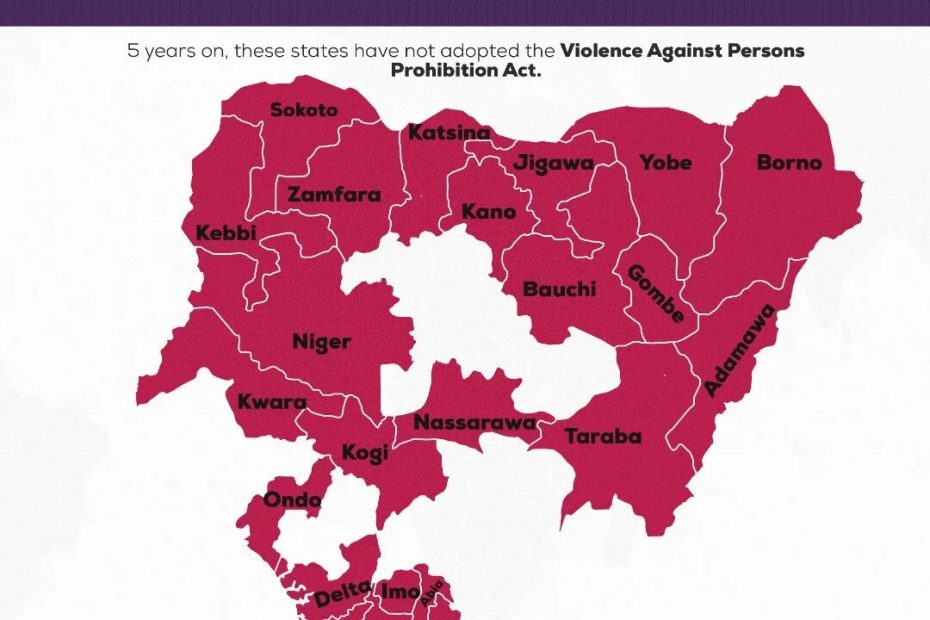Signed into law by President Muhammadu Buhari in May 2015, the VAPP Act is the single law in place that transcends the criminal and penal code in guaranteeing justice and protecting the rights and properties of victims of sexual and gender-based violence across the country.
The VAPP Act expands the definition of rape, domestic offences, incest and several forms of violence. It also ensures justice and protection of victims in a way that guarantees freedom, compensation and respect to human rights.
Under the VAPP Act, a wide range of Sexual and Gender-Based Violence (SGBV) including; forced financial dependence or economic abuse, harmful widowhood practices, genital mutilation, abandonment of children, harmful substance attacks, and incest are all recognized as punishable offences.
According to the 2018 Nigeria Demographic and Health Survey (NDHS) report, approximately 31 percent of women aged between 15 and 49 had experienced some form of physical violence since age 15, and 14 percent had experienced physical violence in the 12 months preceding the survey.
Lemmy Ughegbe, a children’s advocate and Director of Make a Difference Initiative, said it is for lack of uniformity in the law with regards to the battle to eliminate pedophilia, gender-based violence and sundry discrimination and abuses that the VAPP Act was enacted.
“The major stumbling block to this is the far north where early marriages is a culture,” Ughegbe told The ICIR in a WhatsApp interview.
According to Women At Risk International Foundation, in a year, over 30 percent of women in Nigeria experience one form of domestic violence or another.
In a 2015 UNICEF report, it was found that one in four females in Nigeria experience sexual violence in childhood with approximately 70 percent reporting more than one incident of sexual violence before they clock 18.
Chioma Agwuegbo, founder TechHerNG, during a protest against SGBV, held at the Police Headquarters on June 5, read out 100 cases of SGBV that have occurred in the country between January – June 2020, lamenting that sexual violence has become a scourge.
According to Agwuegbo, the 100 names of victims represent cases that have come to her organisation, iterating that there are many more which have gone unreported and hundreds of cases in which justice is completely eluded.
A new dawn in Bauchi State
While several Northern states are yet to adopt the VAPP Act, Bauchi State House Assembly is already in the process of enacting the law.
On Tuesday, the VAPP Act passed second reading at the state House of Assembly.
According to Abubakar Suleiman, Speaker of the State Assembly who is also the sponsor of the bill, cases of rape and domestic violence have become the other of the day across the country and indeed in Bauchi State.
“Ugly events currently happening in the country and particularly Bauchi State in which violence against persons mostly in the form of rape and other domestic violence on both women, men and children are becoming the order of the day,” Suleiman said.
“They rape and also kill their victims. How many more girls need to die this way? We cannot continue this way. We cannot continue to look away and ignore these murders. This is insane, ” Suleiman said, while vowing that the State House Assembly would put to end, the anomalies through effective legislation.
Credit:
Map showing states that have and have not domesticated VAPP Act in Nigeria.
CREDIT: TechHer
www.icirnigeria.org/hall-of-shame-23-states-yet-to-pass-anti-rape-law-majority-are-from-the-north/
